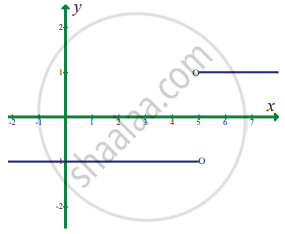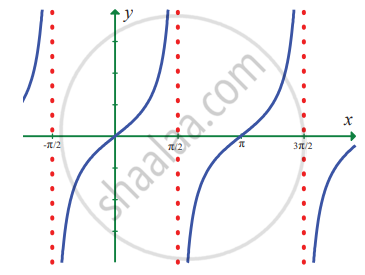Advertisements
Advertisements
प्रश्न
Evaluate the following limits:
`lim_(x -> oo) x [3^(1/x) + 1 - cos(1/x) - "e"^(1/x)]`
उत्तर
We know `lim_(x -> 0) ("e"^x - 1)/x` = 1
`lim_(x -> 0) ("a"^x - 1)/x` = log a
`lim_(x -> 0) (1 - cosx)/x` = 0
`lim_(x -> oo) [3^(1/x) + 1 - cos(1/x) - "e"^(1/x)] = lim_(x -> oo) [(3^(1/x) + 1 - cos(1/x) - "e"^(1/x))/(1/x)]`
= `lim_(x -> oo) [(3^(1/x) - 1 + 1 - "e"^(1/x))/(1/x) + (1 - cos(1/x))/(1/x)]`
= `lim_(x -> oo) [((3^(1/x) - 1) - ("e"^(1/x) - 1))/(1/x) + (1 - cos(1/x))/(1/x)]`
= `lim_(x > 0)[(3^(1/x) - 1)/(1/x) - ("e"^(1/x) - 1)/(1/x) + (1 -cos(1/x))/(1/x)]`
Put y = `1/x`
When x = `oo`
⇒ y = `1/oo` = 0
`lim_(x -> oo) x [3^(1/x) + 1 - cos(1/x) - "e"^(1/x)] = lim_(y - 0) [(3y - 1)/y - ("e"^y - 1)/y + (1 - cosy)/y]`
= `(lim_(y -> 0) (3^y - 1)/y) -(lim_(y -> 0) ("e"^y - 1)/y) + (lim_(y -> 0) (1 - cosy)/y)`
= `log 3 - 1 + 0`
`lim_(x -> oo) x [3^(1/x) + 1 - cos(1/x) - "e"^(1/x)] = (log 3) - 1`
APPEARS IN
संबंधित प्रश्न
Evaluate the following limit:
`lim_(z -> -5)[((1/z + 1/5))/(z + 5)]`
Evaluate the following limit:
If `lim_(x -> 1)[(x^4 - 1)/(x - 1)]` = `lim_(x -> "a")[(x^3 - "a"^3)/(x - "a")]`, find all possible values of a
Evaluate the following limit :
`lim_(z -> "a")[((z + 2)^(3/2) - ("a" + 2)^(3/2))/(z - "a")]`
Evaluate the following :
`lim_(x -> 0)[x/(|x| + x^2)]`
In exercise problems 7 – 15, use the graph to find the limits (if it exists). If the limit does not exist, explain why?
`lim_(x -> 5) |x - 5|/(x - 5)`
In exercise problems 7 – 15, use the graph to find the limits (if it exists). If the limit does not exist, explain why?
`lim_(x -> x/2) tan x`
Verify the existence of `lim_(x -> 1) f(x)`, where `f(x) = {{:((|x - 1|)/(x - 1)",", "for" x ≠ 1),(0",", "for" x = 1):}`
Evaluate the following limits:
`lim_(x -> oo) 3/(x - 2) - (2x + 11)/(x^2 + x - 6)`
Show that `lim_("n" -> oo) 1/1.2 + 1/2.3 + 1/3.4 + ... + 1/("n"("n" + 1))` = 1
A tank contains 5000 litres of pure water. Brine (very salty water) that contains 30 grams of salt per litre of water is pumped into the tank at a rate of 25 litres per minute. The concentration of salt water after t minutes (in grams per litre) is C(t) = `(30"t")/(200 + "t")`. What happens to the concentration as t → ∞?
Evaluate the following limits:
`lim_(x -> 0) (sin("a" + x) - sin("a" - x))/x`
Evaluate the following limits:
`lim_(x -> 0) (tan 2x)/x`
Evaluate the following limits:
`lim_(x -> 0) (3^x - 1)/(sqrt(x + 1) - 1)`
Choose the correct alternative:
`lim_(x -> 0) sqrt(1 - cos 2x)/x`
Choose the correct alternative:
`lim_(x -> 3) [x]` =
Choose the correct alternative:
`lim_(x -> oo) (1/"n"^2 + 2/"n"^2 + 3/"n"^2 + ... + "n"/"n"^2)` is
`lim_(x -> 0) ((2 + x)^5 - 2)/((2 + x)^3 - 2)` = ______.
`lim_(x→-1) (x^3 - 2x - 1)/(x^5 - 2x - 1)` = ______.
